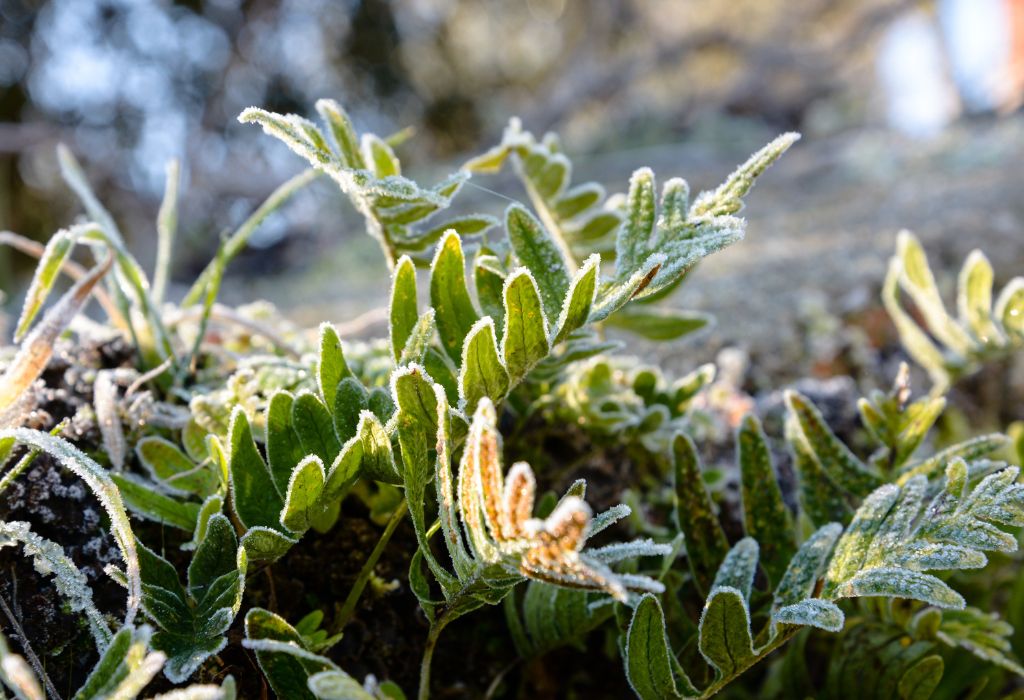A gardener walking across a frost-covered yard in midwinter may feel a sense of relief, assuming the weeds that caused frustration all summer have finally been defeated.
The reality is less comforting, as not all garden weeds actually die when temperatures drop, and many return stronger in spring.
Some weeds collapse visibly above ground but survive unseen through roots, rhizomes, or seeds that remain dormant until warmer weather.
The freeze-and-thaw cycle creates conditions that may kill tender plants but leave many hardy weeds thriving beneath the soil.
According to the Weed Science Society of America, weeds cost U.S. farmers an estimated $33 billion annually in crop losses, showing how resilient they are in every season.
Understanding whether garden weeds die in winter depends on their type, life cycle, and adaptations to cold weather.
Learning how weeds behave during winter helps gardeners prepare more effectively for spring growth.
This complete guide explains which weeds die, which survive, and how to manage them year-round.
Do Garden Weeds Really Die in Winter?

Not all weeds die in winter, as survival depends on whether they are annuals, perennials, or winter-specific species. Many weeds only slow their growth during cold months rather than disappearing.
Annual weeds typically die once frost arrives, but their seeds remain viable in soil until spring. Perennials survive through underground structures and reemerge when conditions improve.
Winter weeds germinate and thrive during the colder season, taking advantage of reduced competition. These weeds often go unnoticed until they spread widely.
Frost can kill tender plants, but hardy weeds adapt to survive and continue their life cycle.
Do all weeds die in winter?
No, many survive in dormant or hardy forms.
Which weeds survive cold weather?
Perennials and winter weeds tolerate frost.
Do weed seeds survive winter?
Yes, most remain viable until spring.
Do weeds go dormant in winter?
Yes, many pause growth underground.
Does frost kill weeds?
Only some tender species.
Annual vs Perennial Weeds in Winter
Annual weeds complete their life cycle in one growing season and typically die when frost arrives. However, they produce thousands of seeds that overwinter in soil.
Perennial weeds live for several years, surviving winter through roots, tubers, or rhizomes. They regrow quickly once temperatures rise.
Annuals such as crabgrass may vanish in winter but return from seed banks. Perennials like dandelions and thistles remain persistent threats.
The distinction is critical for weed management strategies, as perennials require root control while annuals demand seed prevention.
Do annual weeds die in winter?
Yes, but their seeds survive.
Do perennial weeds survive frost?
Yes, through underground parts.
Do annual weeds return in spring?
Yes, from seed germination.
Do perennials spread underground?
Yes, via roots and rhizomes.
Which weeds are hardest to kill?
Perennials like thistles and dandelions.
Cold-Hardy Winter Weeds

Certain weeds actually prefer winter conditions and germinate in cooler soil. Chickweed, henbit, and shepherd’s purse are among the most common cold-weather invaders.
Annual bluegrass is another winter weed that grows actively during colder months. It competes with lawns and garden plants for nutrients and water.
Dandelions, while perennial, endure mild winters and can sprout new growth even under frost. Clover also persists in many regions throughout winter.
Some weeds even use snow cover as insulation, continuing slow growth while other plants remain dormant.
What are winter weeds?
They are species that thrive in cold seasons.
Does chickweed survive winter?
Yes, it grows actively in cold soil.
Is dandelion a winter weed?
Yes, it tolerates frost and regrows.
Does clover grow in winter?
Yes, it persists in mild climates.
Which weeds grow in snow?
Cold-hardy species like bluegrass.
Weed Seeds and Dormancy During Winter
Weed seeds are one of the most resilient survival strategies. Many remain dormant underground until conditions favor germination.
Cold temperatures often act as a trigger, breaking seed dormancy through stratification. This ensures weeds sprout rapidly in spring.
Some seeds can survive for decades in soil seed banks, waiting for the right conditions. This persistence makes eradication difficult.
Frozen soil does not destroy seeds, and in fact, snow cover may protect them from harsh conditions.
Do weed seeds die in winter?
No, most remain viable.
Do seeds survive in frozen soil?
Yes, many withstand freezing.
Can seeds last years underground?
Yes, some survive for decades.
Does snow protect weed seeds?
Yes, it insulates the soil.
Do weeds sprout earlier in spring?
Yes, especially after dormancy breaks.
How Winter Affects Weed Growth

Winter slows weed growth but rarely eliminates it. Many weeds conserve energy underground and return when conditions improve.
Frost damages delicate weeds but strengthens hardy ones by reducing competition. Mild winters allow even more weeds to survive.
Snow cover acts as a protective blanket, keeping soil warmer than exposed areas. This helps weeds like dandelions and clover endure cold spells.
As temperatures rise, weeds quickly regain growth, often earlier than cultivated plants.
Does frost kill weeds completely?
No, only tender varieties.
Do weeds still grow under snow?
Yes, some survive beneath cover.
Does mild winter increase weeds?
Yes, it boosts survival rates.
Does snow protect weeds?
Yes, by insulating roots.
Do weeds come back stronger in spring?
Yes, due to reduced competition.
Managing Garden Weeds in Winter
Winter weed control prevents spring outbreaks. Mulching helps block sunlight and suppress weed germination.
Cover crops like rye or clover outcompete weeds and enrich soil. They provide natural weed suppression during cold months.
Pulling visible weeds in late fall reduces seed spread before winter. This limits the next season’s population.
Herbicide use in winter is less effective, as many weeds are dormant. Mechanical and cultural controls are more practical.
How to control weeds in winter?
Use mulch and cover crops.
Does mulch stop winter weeds?
Yes, it blocks light.
Are cover crops effective?
Yes, they suppress growth.
Can you spray herbicide in winter?
Not very effectively.
Should you pull weeds before frost?
Yes, to reduce seed spread.
Preparing for Spring Weed Control

Winter is the ideal time to prepare for spring management. Removing dead weeds and debris reduces seed banks.
Applying pre-emergent herbicides in early spring prevents seeds from sprouting. Timing is critical for effectiveness.
Improving soil health with compost and aeration gives garden plants an advantage over weeds. Healthy soil promotes stronger crop growth.
Planning crop rotation or garden layout can further disrupt weed cycles. Strategic planning reduces reliance on chemicals.
Do weeds come back in spring?
Yes, often stronger than before.
When should you prepare for weeds?
During late winter and early spring.
Do pre-emergents stop weeds?
Yes, if applied correctly.
Does soil health affect weeds?
Yes, healthier soil resists invasion.
How to reduce weeds long-term?
Use integrated control methods.
Conclusion
Not all garden weeds die in winter, and many survive in dormant or cold-hardy forms. Annuals leave behind seeds, while perennials regrow from roots.
Winter weeds thrive in cold months, and seeds persist in soil for years. This ensures weeds return even after frost.
Managing weeds in winter with mulch, cover crops, and fall cleanup reduces spring infestations. Prevention is more effective than reaction.
Final advice: treat winter as an opportunity to prepare, giving your garden a head start against weeds in 2025.
I’m Maya L. Greenwood, a lifelong plant lover who believes anyone can grow something beautiful with the right guidance. After years of testing soil mixes, pruning methods, irrigation tricks, and pest-safe solutions, I started EasyGardenTips.com to turn hard-won lessons into step-by-step advice. From seed starting and container gardens to composting and seasonal checklists, my goal is to make gardening simple, sustainable, and fun.
